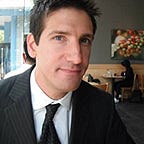Into the Wild: A Life Worth Mentioning
In 1992, Jon Krakauer was working as a journalist for Outside magazine, when he was asked to write a nine-thousand-word article about the life and death of Christopher Jonson McCandless, a young man who gave away most of his money and possessions and headed into the Alaska wilderness, alone. The article, which ran in the January 1993 issue of the magazine, generated more mail than any other article in the magazine’s history (Krakauer). Jon Krakauer’s obsession with Christopher McCandless’s life and death didn’t end with the Outside magazine article, instead, it became an obsession, retracing Christopher McCandless’s journey from beginning to end. Jon Krakauer’s fascination with Christopher McCandless’s life resulted in the biography Into the Wild, which takes a deeper look into the life and death of Christopher McCandless. Jon Krakauer, an adventurer in his own right, approaches the subject of Christopher McCandless with dignity and truth, and it is only because of Krakauer’s own experience as an outdoorsman and journalist for Outside magazine, that he is allowed to tell a reliable, if somewhat subjective biography, about Christopher McCandless.
Jon Krakauer doesn’t claim to be an impartial biographer. In fact, it was McCandless’s strange tale that struck a personal note with the author, allowing a dispassionate rendering of the tragedy impossible (Krakauer). Jon Krakauer showcased exceptional investigative journalism, in tracking down those who had met Christopher McCandless. It is these small encounters that not only shed light on the story, but also unravel the enigma that is Christopher McCandless. In chapter 8 and 9 of Into the Wild, Krakauer does an excellent job of comparing McCandless’s life with those who traveled similar paths in life. Krakauer sheds light on McCandless’s character by comparing him to previous survivalists and naturalists. In doing so, Krakauer further convinces the reader that although McCandless was unique, the impulses that drove him were not unusual for a young man.
Up until chapter 14, author Jon Krakauer maintains journalistic objectivity, but he abandons that perspective. Krakauer never claims to be fully objective about his subject. In fact, Krakauer divulges that he had his own Alaskan experience as a young man. Because of Krakauer’s honesty, the author views McCandless’s activities with some empathy. Not only does Krakauer compare McCandless’s adventures with those of Rosselini, Waterman, McCunn, and Reuss, but himself, too.
In chapter 15 of “Into the Wild,” Jon Krakauer shares his experiences as a young teen and talks about his relationship with his father. One doesn’t have to look far to find similarities in Krakauer’s life and that of his protagonist, Christopher McCandless. Both had Fathers that wanted their sons to excel professionally, while young Krakauer and McCandless sought to make their own paths. Krakauer can sympathize with McCandless, because he, too, almost succumbed to the elements while attempting to climb Devils Thumb, on Alaska’s Stikine Ice Cap. It was only through the grace of God that Krakauer survived and McCandless did not.
Jon Krakauer doesn’t glorify Chris McCandless’s errors. In fact, he calls him out on it. In chapter 16, it is mentioned that he could have crossed the river if he trekked just a mile upriver, something that could have been accomplished with a map, an object that McCandless’s refused to bring with him. Being an outdoorsman, Jon Krakauer felt intrigued enough by Christopher McCandless, to retrace his steps into the wild, and to try to bring some closure to the boy’s family. Jon Krakauer succeeds, for the most part, in telling the story of Christopher McCandless objectively. But because of their similar interests and backgrounds, it’s near impossible not to be subjective. Like many readers, I have a hard time understanding what made McCandless leave everything behind and set out into the wild. Perhaps the works of Jack London, Leo Tolstoy, and Henry David Thoreau influenced McCandless, allowing him to question a content and materialistic middle-class existence.
I believe that Jon Krakauer’s interest in Christopher McCandless’s journey is stronger than my own, because of their shared love of the outdoors. Unless one lives that sort of life and existence, it would be difficult for an outsider to understand what makes one want to climb a mountain or live without a house or a career. Many people felt compelled to write angry letters to the author, when the story was first published in Outside magazine. To many, it seemed like Krakauer was glorifying the life of this privileged kid, a young man who had abandoned his loving parents, to live this fantasy life. Into the Wild is mostly objective and accurate in its descriptions, but I still fail to see what is so fascinating about Christopher McCandless. Krakauer invested years of research into the life of this unknown kid. Jon Krakauer has made Christopher McCandless a folk hero, with a bestselling book, and a Hollywood movie. From everything I read, I would conclude that Christopher wanted nothing to do with any sort of recognition, whether positive or negative. Christopher was a loner, somewhat overconfident, but with ambitions and goals that others might not understand. Perhaps that’s why he is so fascinating to so many people around the world.
Works Cited
Krakauer, Jon. Into the Wild. Anchor Books, 1997. E-book.
